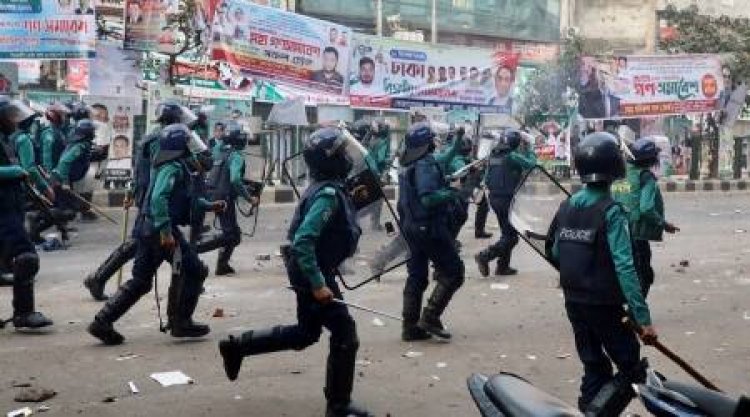China Protests: Neither the Party Not the People Should Be Underestimated
STORIES, ANALYSES, EXPERT VIEWS

Protests in China against Xi’s zero-Covid-19 policy, erupted simultaneously in several major cities such as Shanghai, Beijing, Xian, Nanjing, Chengdu, Wuhan, Urumqi, Guangdong and Zhengzhou with the participation of students, migrants, workers and other citizens around a single cause. The protesters shared the prevalent opinion that the zero-Covid policy had become unscientific and irrelevant and was being foisted upon the country due to Xi’s ideological obsession.
The protests, writes Yogesh Gupta (former Ambassador) were as much against Xi’s faulty governance as the zero-Covid policy……The protests show that even a docile population under the most repressive control would rise against the government’s unscientific and irrational policies when these hurt their lives. In today’s interconnected world, people can’t be suppressed by information firewalls, surveillance tools, prison terms and other draconian measures. The Xi regime has been indifferent to the miseries of its people for long and has been formulating policies cut off from the ground realities.
“The reputation and standing of President Xi Jinping at home and abroad have been sullied, with many questioning his leadership openly…..”
Protests are ‘astonishing’
The protests are “astonishing”, according to Jabin T Jacob (Associate Professor at the Department of International Relations and Governance Studies, Shiv Nadar University, Delhi NCR) with protestors shouting, 'CCP, step down! Xi Jinping, step down!’. “That such slogans should be heard so soon after the conclusion of the Chinese Communist Party’s 20th Congress is particularly noteworthy. While Xi is perceived to have decisively established his personal control over the party and its organs, that is clearly not the same as establishing his sway over the masses…….
“It is important, however, to not underestimate the CCP’s abilities in times of crisis. It has survived tumult and protests before and of far larger scale and duration. It has done so by employing a degree of nimbleness and adaptation unusual for large political parties that have been in power for long. It has always had a variety of measures at its disposal, ranging from waiting it out and opening channels of negotiation with the protestors to simply and decisively cracking down with violence. The CCP might, therefore, yet win this round against the Chinese people.
“At the same time, it is perhaps just as important not to underestimate the Chinese people either. Despite the…Party-state capacities, including control over news and information through heavy censorship and propaganda, the protests show that the minds of the Chinese people are not blank slates for the party to write on as it wishes.”
China’s dilemma
Generally agreeing with the above assessment, Manoj Kewalramani (fellow, China Studies, The Takshashila Institution) writes “it is too early to assume that the protests present a major or systemic challenge to the Communist Party’s rule in the country. The party-State has spent years and billions in strengthening its surveillance, policing and mass control capabilities….
“That said, the Chinese leadership today finds itself caught between a rock and a hard place. On the one hand, the zero-Covid policy is increasingly unsustainable. The protests have shown that popular support for the policy is rapidly eroding. The unpredictability and disruption that the policy engenders are damaging economic growth, hurting local businesses, and weakening foreign investor sentiment. On the other hand, containing Covid-related deaths is a legacy issue for Xi and is key to the party’s legitimacy…..”
What China experts think
It is interesting to note what some influential China-watchers, both Indian and international, think about the protests. The debated the subject under the aegis of the prestigious Institute of Chinese Studies (ICS), with a little help from the conservative German think-tank, the Konrad Adenauer Foundation and Goa University.
On this, Jyoti Malhotra (consulting editor, ThePrint) writes “certainly, the ICS forum agreed that Xi Jinping had consolidated his power, even if it was at the cost of ideology, and elevated himself to become part of the Mao-Deng-Xi trinity….”
On the protests, Alka Acharya, ICS director and JNU professor, noted that it was important to note that the protests ‘don’t really constitute ‘dissent’ in the sense of political opposition to the Communist Party,’ which is why the Chinese leadership would likely adopt ‘a calibrated carrot and stick’ policy.
According to Israeli scholar Tuvia Gering, Xi Jinping is not just China’s most powerful man, but he is also its ‘storyteller-in-chief,’ reiterating the message that powerful enemies in the West have held the microphone for too long and that China’s stories need to be told by the Chinese themselves.
















